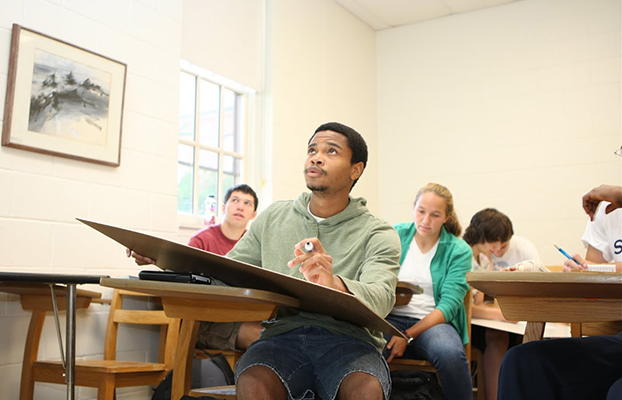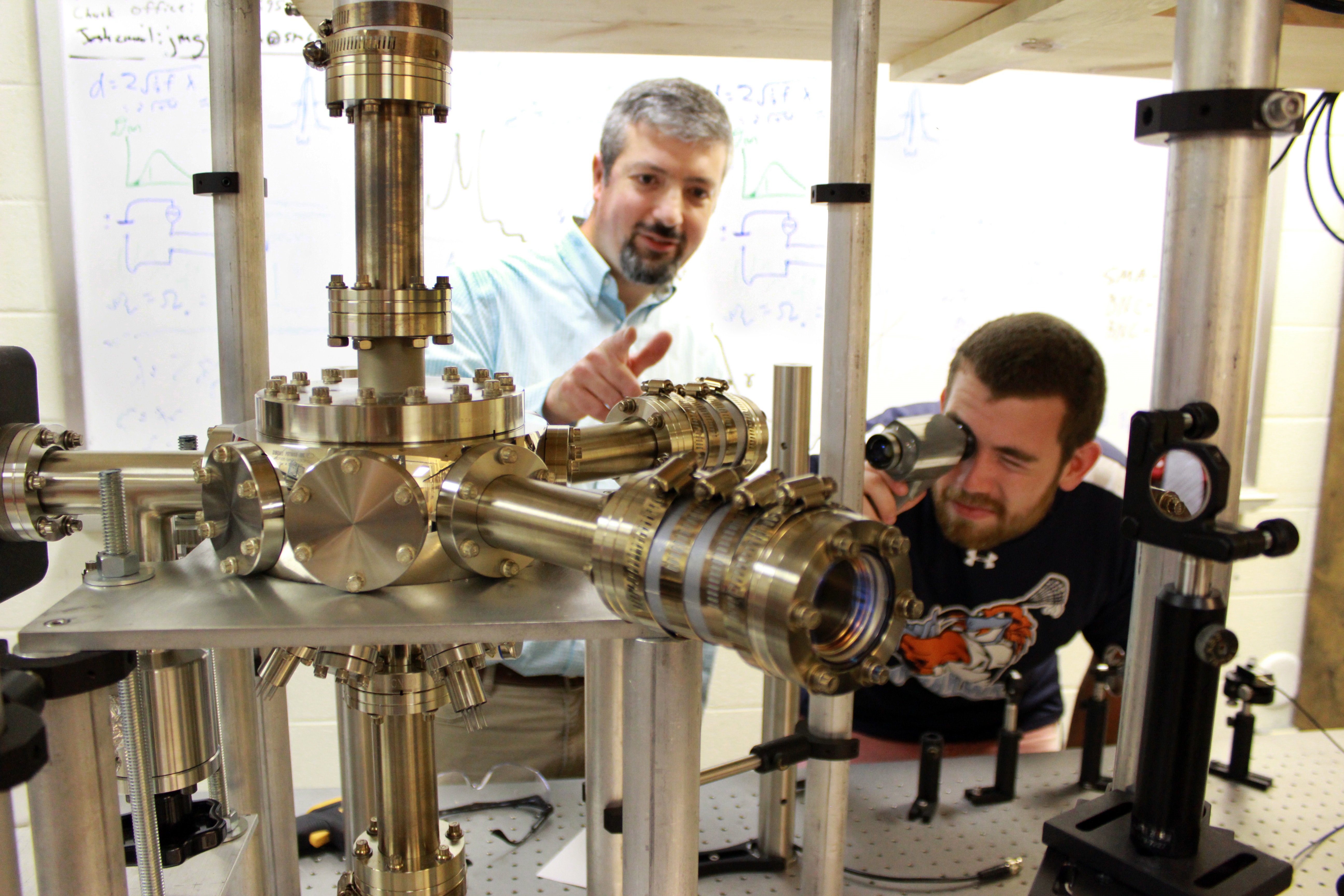
- Physics
- Dual-Degree Engineering Program
- Masters in Teaching Program
Physics Major
This track fits more for students who are interested in the applications of science, particularly physics, to the understanding and development of technology. It is a good preparation for post-graduate technology jobs, including jobs in engineering and IT fields, and preparation for graduate school in the applied sciences and in engineering.
Degree Requirements for the Major
To earn a bachelor of arts degree with a major in physics, a student must satisfy the following minimum requirements:
General College Requirements
General College Requirements (see “Curriculum” section), including the following requirements to satisfy the major
Required Courses
Physics Core Courses (32 credit hours)
Research Experience
Research is integral to the practice of physics. Every physics major with concentration in applied physics must successfully complete a research experience in one of the following three ways:
- St. Mary’s Project. This project may be in physics or in another major discipline or a study area. The guidelines established in the selected area apply. The project must be proposed to a mentor and to the chair of the Department of Physics at least three weeks before the last day of classes of the second semester of the student’s junior year, and it must be approved by the mentor and the department chair.
- Directed Research in Physics at an upper level. To use Directed Research to satisfy the research requirement for the concentration in applied physics, students must successfully complete a total of four credits of upper-level Directed Research in Physics (PHYS 397 or 497). Concurrent with the final credit of Directed Research, the student must also register for PHYS 350 and complete its presentation requirement.
- Other research experience. Students with a concentration in applied physics may satisfy the research requirement with another approved research experience, such as a Research Experience for Undergraduates or a research assistantship at another institution, so long as the research experience is in physics or a related discipline and it occupies at least 160 hours. Concurrent with the research experience, the student must also register for PHYS 350 and complete its presentation requirement.
Minimum Grade and GPA Requirements
Students must earn a grade of C- or better in all courses listed in items 2-3 above, and maintain an overall GPA of 2.0 or better in these required courses.
Planning Your Degree
Each student will plan an individual program with an adviser to arrive at a combination of courses that will meet the requirements for the major and be most meaningful for the student’s goals and interests. The physics faculty strongly recommends that the student obtain an adviser from among the faculty in the student’s area of concentration by the beginning of the junior year.
Dual-Degree Engineering Program
The knowledge you will gain from the programs at St. Mary’s will significantly prepare you to join the McKelvey School of Engineering at Washington University through our dual-degree program (this program has options for 3-4 years at St. Mary’s and 2-3 years at Washington University). Students completing this program will earn a bachelors of science in physics from St. Mary’s and a bachelors in engineering from Washington University. It takes 2 years at Washington University to earn a bachelors in engineering and 3 years
One third of St. Mary’s physics majors enter careers in engineering. About two thirds of those (about 20% overall) carry out some graduate study in engineering after earning their St. Mary’s physics BS degree. The other third (about 10% overall) secure general engineering positions with their physics BS and no additional graduate study.
If you’re interested in this option, contact the department chair, Dr. Erin De Pree.
The Masters in Teaching Program
Physics Major with preparation for the Masters of Arts in Teaching (MAT): The Physics major is ideal for students interested in high school teaching. There is a nationwide shortage of teachers with strong science backgrounds. In preparation for the MAT and a career as a secondary physics teacher, we provide the option of physics major and an educational studies minor. Two great things about the MAT: (1) You can get your master’s degree in 1 year, and (2) 100% of the MAT graduates are hired within their first year out of college.
Learn more about the MAT.

